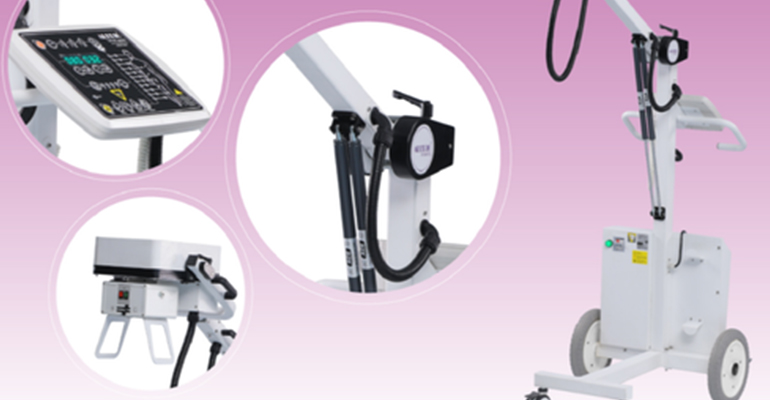
What is Digital X-Ray Scan?
A Digital X-Ray Scan is a modern imaging technique that uses digital sensors instead of traditional photographic film to capture detailed images of the internal structures of the body. This method provides high-quality images quickly and efficiently, aiding in the diagnosis and monitoring of various medical conditions.
Uses and Benefits of Digital X-Ray Scan
- Quick and Efficient: Digital X-rays are faster than traditional X-rays, providing immediate images that can be enhanced and analyzed on a computer.
- High Image Quality:Offers superior image resolution, allowing for more accurate diagnoses.
- Reduced Radiation Exposure:Generally uses less radiation compared to traditional X-rays, making it safer for patients.
- Easy Storage and Sharing: Digital images can be easily stored, retrieved, and shared electronically with other healthcare providers.
Why the Test is Performed
- Diagnostic Purposes:To identify fractures, infections, and abnormalities in bones and organs.
- Monitoring:To follow the progression of a disease or the healing process of an injury.
- Guiding Treatment:Assisting in the planning and monitoring of surgical procedures.
When You Should Avoid
- Pregnancy:Generally avoided unless absolutely necessary due to the potential risk to the fetus.
- Recent Contrast Exams:If you've recently had a contrast exam, inform your doctor as it may affect the results.
Instructions to Follow When Preparing for a Digital X-Ray
- Remove Metal Objects:Jewelry and other metal objects should be removed as they can interfere with the image.
- Wear Comfortable Clothing:You might be asked to wear a gown during the procedure.
- Inform Your Doctor:Notify your healthcare provider if you are pregnant or suspect you might be.
Digital X-Ray Scan Procedure
- Preparation:You may need to change into a gown and remove any metal objects.
- Positioning:You will be positioned on an X-ray table or stand in front of the digital X-ray machine.
- Image Capture:The radiographer will position the digital sensor and take the necessary images.
- Completion:The images are instantly available for review, and you can usually resume normal activities immediately.
Types of Digital X-Ray
- Abdominal X-rayUsed to visualize the organs and structures within the abdomen to detect issues like blockages or foreign objects.
- Cervical X-ray:Examines the cervical spine (neck region) to identify fractures, dislocations, or degenerative conditions.
- Chest X-Ray:Assesses the lungs, heart, and chest wall for conditions such as pneumonia, heart failure, or lung cancer.
- Lumbar Spine X-ray:Focuses on the lower back to diagnose causes of lower back pain, such as herniated discs or spinal arthritis.
- Shoulder X-ray:Evaluates the shoulder joint for fractures, dislocations, or arthritis.
- Knee X-Ray:Helps diagnose conditions affecting the knee, such as fractures, arthritis, or ligament injuries.
- Hand X-ray:Used to detect fractures, infections, or arthritis in the bones of the hand.
- Pelvis X-Ray:Visualizes the pelvic bones to diagnose fractures, arthritis, or other abnormalities.
- Skull X-ray:Examines the bones of the skull to detect fractures, infections, or tumors.
- Foot X-ray:Assesses the bones and joints in the foot for fractures, arthritis, or other conditions.
- Sinus X-ray:Used to view the sinuses and diagnose infections, inflammation, or structural abnormalities.
Digital X-Ray Scan Procedure
- Preparation:You may need to change into a gown and remove any metal objects.
- Positioning:You will be positioned on an X-ray table or stand in front of the digital X-ray machine.
- Image Capture:The radiographer will position the digital sensor and take the necessary images.
- Completion:The images are instantly available for review, and you can usually resume normal activities immediately.
FAQ's
What is the difference between traditional X-rays and digital X-rays?
Digital X-rays use digital sensors to capture images, which are then viewed on a computer, whereas traditional X-rays use photographic film.
Is digital X-ray safe?
Yes, digital X-rays are safe and generally use less radiation compared to traditional X-rays.
How long does a digital X-ray procedure take?
The procedure usually takes about 10-15 minutes, depending on the area being examined.
Can I see the images immediately?
Yes, digital X-ray images are available immediately for review by your healthcare provider.
For comprehensive Digital X-Ray services, visit Akshar Imaging Centre in Ahmedabad. Our experienced radiologists and state-of-the-art technology ensure accurate and reliable diagnostic results. Schedule your appointment today!


